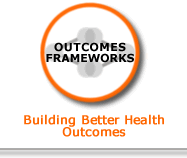There is evidence of an association between the six key intermediate outcomes of models 2 and 3 and one or more of the longer-term outcomes: workers and those choosing to move towards work receive timely tailored support; and more workplaces effectively implementing supportive health, work and well-being policies and, subsequently, practices.
Rationale
The intermediate outcomes will contribute to increased uptake of services and support by individuals and workplaces, and to early detection of health and work issues in the workplace and in relevant services (e.g. health care, Jobcentres, social care services). The resulting increased early intervention will support more people to return to or remain in work and well.
There is review level evidence:
-
that the longer the duration of sickness absence, the lower the chances of return to work, and the greater the obstacles to return to work and vocational rehabilitation.[1]
-
that simple, inexpensive healthcare and workplace interventions in the early stages of sickness absence can be effective and cost effective for increasing return to work rates and reducing the number of people who go on to long-term disability.[1]
-
for the impact of provision of support to workplaces to develop and implement effective health and work policies and practices has been identified.[1, 2]
Informed by reviews of effectiveness evidence, NICE public health guidance 19 Managing long-term sickness absence and incapacity for work sets out a recommendation that organisations commissioning services for individuals who are unemployed and claiming incapacity benefit or employment and support allowance should commission integrated programmes to help claimants enter or return to work (paid or unpaid).[2]
An ongoing evaluation of the Scottish Centre for Healthy Working Lives Workplace Services and Award Programme will test the argument that supporting employing organisations to protect and enhance the health and well-being of the workforce results in healthier staff and has the added benefit of contributing to improved organisational performance. Reports can be found on the evaluation pages.
-
Waddell G, Burton AK, Kendall N (2008). Vocational Rehabilitation: What works, for whom, and when? Vocational Rehabilitation Task Group report. The Stationary Office: London.
-
NICE (2009). NICE public health guidance 19 Managing long-term sickness absence and incapacity for work. NICE: London.
|



